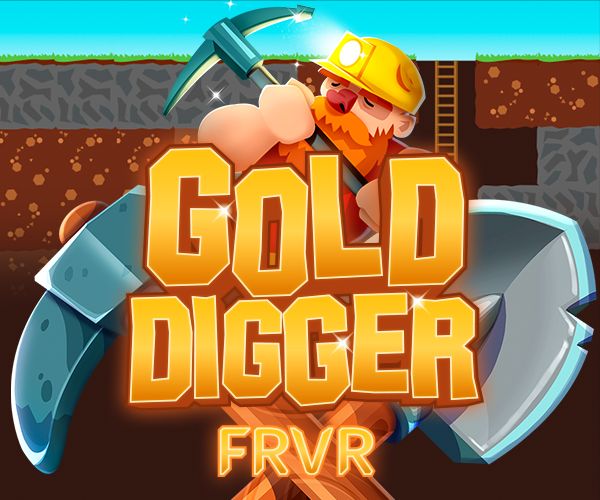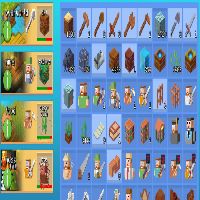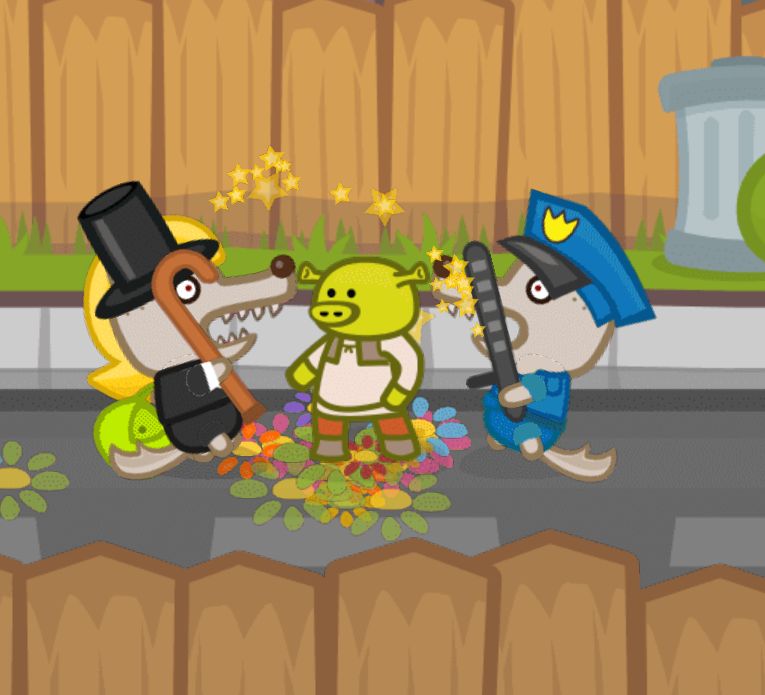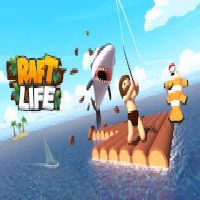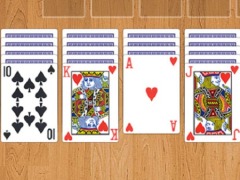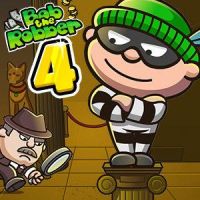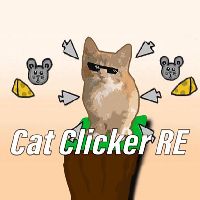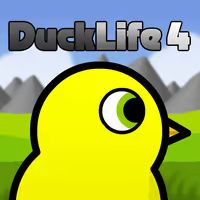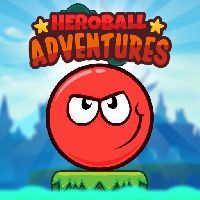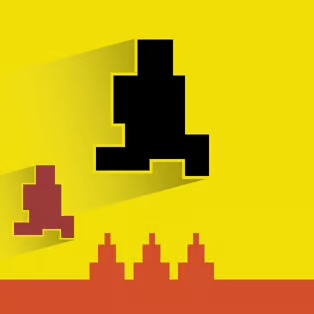Kongregate Games — History, Community and Features of the Pioneering Gaming Portal
TRENDING GAMES
LATEST GAMES
FEATURES GAMES
Origins and Growth of Kongregate
An online gaming hub that has stood at the intersection of web games and community features is Kongregate. The site launched on October 10 2006 as an alpha test by siblings Emily and Jim Greer and entered public beta early the following year.. It quickly became a gathering place for independent game developers and players. By July 2008 the platform had secured around $9 million in funding from investors such as Reid Hoffman, Jeff Clavier, Jeff Bezos and Greylock Partners. This infusion of capital allowed the team to expand infrastructure, attract more developers and market the portal to a broad audience. The site’s approach distinguished it from traditional game publishers: rather than focusing on a handful of flagship titles, it opened its doors to thousands of small projects. Over the years Kongregate grew to host over 124,000 online games across genres and 30+ mobile games on its portal, making it one of the largest collections of browser-based entertainment on the internet.
In July 2010 GameStop announced an agreement to acquire Kongregate, bringing additional resources and distribution channels. Under GameStop’s ownership, Kongregate introduced innovations like Kongpanions — digital creatures that act as site-wide achievements. These collectible companions could be used in certain games and encouraged players to engage with daily and weekly challenges. In 2017 the portal changed hands again when Swedish entertainment company Modern Times Group acquired it for $55 million. The new owner signaled a shift toward supporting developers through marketing investment and cross-platform porting, including bringing web games to Steam.
The most recent chapter began in 2024 when the game development studio Monumental acquired Kongregate. This move suggests continued emphasis on game development and new technology integration, particularly as the platform explores blockchain-based titles through projects like Kongregate.io.
A Vast Library of Independent Games
At its peak, Kongregate offered a library unmatched in scope. Thousands of creators uploaded games built using Adobe Flash, HTML5/JavaScript, Shockwave, Java and Unity. These titles ranged from minute-long puzzles to engrossing multiplayer experiences. The platform accepted submissions until 2020, when it stopped new uploads to prepare for the end of Flash Player. Games submitted prior to the cutoff remain accessible, preserving a catalogue of indie creativity that might otherwise have vanished.
The diversity of the library is one of its defining features. Kongregate became synonymous with idle or clicker games such as AdVenture Capitalist and Clicker Heroes. These games revolve around accumulating resources incrementally, making them ideal for casual play during breaks. Yet the site hosted shooters, role-playing adventures, platformers, puzzle games, tower defense titles, card games and simulation experiences. Players could switch seamlessly between genres, exploring new mechanics without needing to download anything.
Community Favorites and Cult Classics
Among the thousands of titles, certain games gained large followings. AdVenture Capitalist invited players to build an empire by investing in lemonade stands and oil companies, then reinvesting profits to scale further. Clicker Heroes combined incremental mechanics with RPG elements, where players fought monsters to earn gold and purchase hero upgrades. Other widely played titles included Crusaders of the Lost Idols and Anti‑Idle: The Game. These games cultivated loyal communities who shared strategies on forums and competed on high score boards.
Kongregate’s library contained experimental indie works that later became influential. Many developers used the platform as a launching pad to test mechanics and receive feedback. Some prototypes evolved into commercial releases on Steam or mobile stores. The site allowed rapid iteration, so developers could iterate on ideas quickly and build an audience simultaneously.
User Experience and Community Features
The appeal of Kongregate extended beyond its games. It was designed as a social network for gamers, featuring user profiles, friend lists, chat rooms and forums. Players could follow one another, track achievements and join chat rooms dedicated to specific games or interests. Integrated high scores and achievement badges added a competitive layer, encouraging replay to climb leaderboards.
Kongpanions and Badges
Introduced in 2014, Kongpanions added a charming meta‑game to the platform. Each week the site released a new digital creature that could be earned by achieving a set number of badges. Players who collected enough Kongpanions unlocked bonus content in certain games. These creatures often took the form of animals or anthropomorphized objects, and their designs referenced popular culture and game tropes. The system inspired players to sample games they might not have otherwise tried.
Kreds and Premium Memberships
Kongregate’s revenue came from advertising, corporate sponsorships, premium memberships and an in-game currency called Kreds. Kreds could be purchased with real money and spent within games for items, boosts or cosmetic enhancements. The platform offered a paid membership, often referred to as Kong+, which provided benefits like an ad-free experience, increased chat privileges and bonus Kreds. These monetization methods allowed the site to remain free to access and supported developers through revenue sharing.
Developer Tools and Incentives
Central to Kongregate’s success was its support for creators. The portal supplied APIs for leaderboards, achievements, microtransactions and data storage. Developers could integrate these features easily and improve their games without managing backend infrastructure. In 2013 Kongregate announced a $10 million fund to support mobile gaming, hiring industry veteran Pany Haritatos to oversee the program. The fund provided financial and marketing assistance to free‑to‑play mobile game developers. Beneficiaries included Synapse Games, RedPoint Labs and Making Fun. In 2016 the company announced tools to help developers port games to the Steam platform and share data across web and mobile.
Achievements and High Scores
Achievements and high scores were more than cosmetic features; they created a sense of progression and competition. Each game could implement badges awarded for tasks like completing levels, achieving certain scores or performing special actions. Players accumulated badges across the site, which increased their user level and displayed on their profile. Leaderboards allowed global competition, and weekly challenge events highlighted trending games.
Transitions: Flash to HTML5 and the End of Submissions
In 2020 Kongregate announced that it would no longer accept new user-submitted games. This decision coincided with the looming discontinuation of Adobe Flash Player, which had powered many of the site’s early games. Without Flash support, browsers could no longer run older content; developers needed to port games to HTML5 or other technologies. Kongregate’s team focused on transitioning internal titles to HTML5 and preserving the existing catalogue. The move marked the end of an era, but it signaled a pivot to curated content and first-party development.
Kartridge and Other Platforms
In November 2018 Kongregate opened Kartridge, a digital storefront for indie games. The store offered both free browser games and premium titles via desktop app and browser. Unlike open platforms like Steam, Kartridge was curated to spotlight quality games and improve discoverability. Developers benefited from increased revenue share on early sales. Kartridge shut down in September 2023; it demonstrated Kongregate’s ambition to expand beyond hosting into distribution.
Kongregate.io and Blockchain Ventures
Seeking to stay relevant in a changing industry, Kongregate announced plans in July 2021 to create Kongregate.io, a portal for games incorporating non‑fungible tokens (NFTs). The company partnered with blockchain platform Immutable X in May 2022, offering a $40 million grant to developers building NFT games for the platform. This investment signaled interest in the emerging intersection of gaming and digital ownership, though such ventures remain controversial among gamers.
Mobile Presence and Cross‑Platform Publishing
Kongregate expanded beyond web games into mobile publishing, releasing 25 games for iOS and Android. Popular mobile titles include AdVenture Capitalist, Pocket Politics and Star Trek Trexels. The company often ported web successes to mobile, maintaining continuity for fans and reaching new audiences. Recognitions such as Apple Editors’ Choice and Google Play Editors’ Choice for games like BattleHand, The Trail, Animation Throwdown and AdVenture Capitalist highlighted its credibility as a publisher.
Community Legacy and Influence on Indie Gaming
For many players, Kongregate was more than a website — it was a community. The combination of social features, leaderboards, badges and a supportive atmosphere created friendships and rivalries. Forums allowed developers to share progress, troubleshoot code and gather feedback. Many early indie successes originated on Kongregate before appearing on larger platforms. The site’s open submission policy (before 2020) gave new developers a chance to showcase work alongside more established creators. Some developers who debuted on Kongregate later produced hit titles on Steam or mobile markets, crediting the site for early exposure and player feedback.
Educational Value and Skill Development
Beyond entertainment, Kongregate served as an educational resource for aspiring developers. By examining others’ games, reading forum discussions and utilising site-provided APIs, developers learned programming principles and game design. The badge and high-score systems taught them how to implement achievements and user engagement mechanics. Many creative coders attribute their first published project to the supportive environment on Kongregate.
Influence on Idle Game Genre
Idle games, sometimes called incremental games, found a nurturing home on Kongregate. Titles like AdVenture Capitalist and Clicker Heroes popularised mechanics that would later permeate mobile and PC markets. The simple loop of earning resources automatically and investing them for exponential growth resonated with players who enjoyed steady progress. Kongregate’s leaderboards and achievements added competition and milestones, turning otherwise passive gameplay into a community experience. This synergy between platform features and game design played a role in the idle genre’s rise to prominence.
Challenges and Changing Market
Even with its achievements, Kongregate has faced challenges. The decline of browser gaming and the end of Flash hurt traffic and limited new submissions. Many players shifted to mobile or PC platforms, where distribution and monetization models differ. Competition from large digital stores like Steam and mobile app stores limited the portal’s growth. Some community members lamented the closure of forums and the discontinuation of badges for new games, feeling that the spirit of the early years has diminished.
Nevertheless, the site continues to operate as a nostalgic archive and a publisher of mobile and PC games. The acquisition by Monumental and ventures into blockchain demonstrate efforts to reinvent and remain relevant. The legacy of Kongregate, particularly its role in nurturing indie talent and popularising idle games, remains significant.
Our Commitment to Preserving Independent Gaming
As enthusiasts and curators of browser-based entertainment, we at kongregate are inspired by the rich history of the original portal. Our aim is to preserve the spirit of community-driven gaming by maintaining a catalogue of titles accessible without barriers. We believe that indie developers deserve a platform to showcase their creativity and reach audiences who appreciate unique experiences. By learning from Kongregate’s successes and challenges, we strive to provide a space where games can thrive without requiring downloads or expensive hardware.
Our platform emphasises simplicity and accessibility. Games load quickly in the browser, and players can jump between genres effortlessly. We support developers by offering tools for high scores, achievements and monetization, following the example set by Kongregate’s APIs. At the same time, we are mindful of evolving technology. Our infrastructure is based on modern standards like HTML5 and WebGL, ensuring compatibility across devices without reliance on outdated plugins.
Features and Benefits We Offer
Curated Library – We host a broad selection of games across genres, focusing on quality and replayability. Our curation helps players discover gems they might otherwise miss.
No Barriers – Registration is optional; players can jump straight into games. For those who choose to sign up, profiles allow bookmarking favourites and tracking achievements.
Community Engagement – Chat rooms and forums encourage discussion, tips and collaboration. We value respectful interaction and maintain an inclusive atmosphere.
Developer Support – Creators can submit games for consideration. We provide guidance on integrating scores and achievements, and we share revenue through advertising and optional in-game purchases.
Modern Technology – Our games rely on up-to-date web standards, ensuring compatibility on desktops, laptops and mobile devices. We continuously monitor performance to guarantee smooth gameplay.
Looking Ahead
Online gaming continues to change, with new technologies and distribution models emerging. Web portals must adapt to remain relevant. We focus on accessibility, community and creative expression to carry forward the legacy of sites like Kongregate and innovate for future audiences. Our goal is to serve as both a museum of indie ingenuity and a launchpad for new ideas.
Conclusion
Kongregate’s story is one of innovation, community and adaptation. Founded by passionate siblings, the platform grew from a small alpha test to a sprawling library of over one hundred thousand games. It nurtured genres like idle games, offered social features that created lasting communities, and provided developers with tools and funding to bring ideas to life. Acquisitions by GameStop, Modern Times Group and Monumental marked shifts in direction, but the essence of open collaboration remained. Though the portal no longer accepts new submissions and faces competition from other gaming services, its impact endures through the memories of players and the success of games that began there.
At kongregate we honour this heritage by curating a modern library of browser-based entertainment. Our commitment to accessibility and community echoes the values that made Kongregate a household name. We invite players and developers alike to explore our portal, participate in discussions and shape the next chapter in online gaming. By fostering creativity and preserving the history of independent games, we aim to carry the torch forward for a new generation of gamers.










